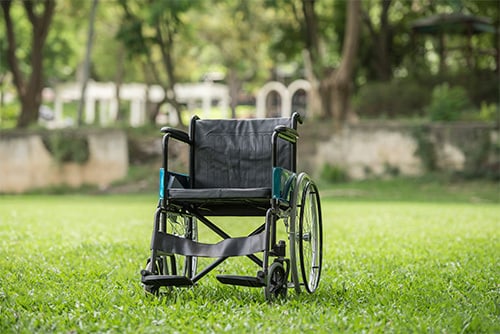Paralysis Attack: Symptoms, Causes and Treatment
April 11, 2022

Paralysis is the loss of muscle function within the body. Paralysis is usually temporary, and in some cases, it’s permanent. Paralysis isn’t limited to any particular part of the body, but most cases of paralysis are observed in limbs. Partial and entire paralysis can occur at any point in time. Any pain doesn’t inflict a patient affected by paralysis upon occurrence.
Depending on the character of the underlying cause, the treatment plan is charted either to cure or treat the condition to make sure that the patient’s daily lifestyle isn’t drastically affected.
A stroke is the most typical underlying condition that triggers partial or complete paralysis during a patient. In partial paralysis, the patient remains in partisan control of the affected muscle; incomplete paralysis, the patient has no control over the affected muscle tissue.
Contents
Also Read: Home Remedies For High Blood Pressure
Paralysis attacks symptoms
The main symptom of paralysis is the inability to move a part of your body or not having the ability to move in the slightest degree. It can start suddenly or gradually. Sometimes it comes and goes.
The most common symptoms of paralysis are:
- Loss of sensation in arms and legs
- Reduced muscle function
- Reduced motor functions
- Losing the ability to talk
Early symptoms are:
- Changes in mood, personality or behaviour
- Confusion or loss of consciousness for even a brief moment
- Difficulty with memory, thinking, talking, comprehension, writing or reading
- Drooling
- Numbness
- Constipation
- Diarrhoea
- Fever
- Hearing loss
- Neck pain
- Rash
- Severe headache
Paralysis can affect any part of the human body, including:
- The face
- The hands
- One arm or leg
- One side of the body
- Both legs
- Both arms and legs
The affected part of your body can also be:
- Stiff (spastic paralysis), with occasional muscle spasms
- Floppy and numb, painful or tingling sensations
Causes of Paralysis attacks
Never should you try to identify the cause of paralysis attack yourself and always seek a doctor’s consultation to get a proper diagnosis.
Some of the leading causes of paralysis are:
- Sudden weakness on one side of the face, with arm weakness or slurred speech.
- Bell Palsy- Sudden weakness on one side of the face, with earache or face pain Temporary paralysis when waking up or falling asleep – Sleep paralysis
- Post a severe accident or injury – a severe head injury or spinal cord (back) injury
- Weakness in the face, arms or legs that appears and disappears.
Other causes of Paralysis attacks include
Some people are born with congenital disabilities like spina bifida that cause paralysis. In addition, a traumatic injury or medical condition often damages muscle and nerve function. Strokes and medulla spinalis injuries are the highest causes of paralysis.
Other causes include
- Acute Flaccid Myelitis
- Brachial Plexus Injury
- Brain Injury
- Cerebral Palsy
- Guillain-Barre Syndrome
- Multiple Sclerosis
- Muscular Dystrophy
- Neurofibromatosis
- Post-Polio Syndrome
- Spina Bifida
- Stroke
- Spinal Tumours
- Brain Tumours
- Spinal Cord Injury
Also Read: Diagnosis Of A Brain Tumor
How is a Paralysis attack diagnosed?
The specialist will examine you and ask about any injuries. For gradual paralysis, you will be needed about when you began noticing the problem.
Some of the procedures for diagnosing paralysis attack include
- X-rays show broken bones that would cause nerve injury.
- Imaging tests, such as a CT scan or MRI, check for a stroke, brain injury, or spinal cord injury signs.
- A whole-body imaging scan shows bones, muscles and tissues.
- Myelogram checks for medulla spinalis and nerve injuries.
- An electromyogram (EMG) tests the electrical activity of nerves and muscles.
- Spinal tap (lumbar puncture) tests cerebrospinal fluid for infection, inflammation and disorders like MS (MS).
Treatment for Paralysis attack
Paralysis attacks can have an enormous impact on your life. Still, support is there to assist you in residing as independently as possible and having the most superficial possible quality of life. The help you would like will primarily rely upon what’s causing your paralysis.
Some of the things that can help people who are paralysed include:
-
- Mobility Equipment includes wheelchairs and limb supports (braces).

-
- In addition, physiotherapy assists you in maintaining the maximum amount of strength and muscle mass.

-
- Occupational therapy helps you adapt your everyday activities, namely dressing and cooking, to be more accessible.

-
- Depending on the nature of the condition, medicines will be prescribed by the doctor to alleviate problems like pain, stiffness and muscle spasms.

-
- Communication will help patients who are suffering from quadriplegia. They can rely on voice-command-based systems for controlling things like light, temperature, TV, audio units, and mobile phones. In addition, patients suffering from locked-in syndrome can use specially adapted computers to make small sentences or improve the form of current communication.

People also ask
1. How do you get rid of paralysis attacks?
At present, there is no cure for paralysis attacks. However, depending on the cause and type of the issue, some people experience a partial or complete recovery. In addition, temporary paralysis may resolve without medical treatment, such as that caused by Bell’s palsy or stroke, may resolve without medical treatment.
2. How long does a paralysis attack last?
The severity of symptoms can range from mild weakness to a paralysis attack. Research shows that symptoms tend to appear and progress over 72 hours or so, after which they stabilise. In most cases, symptoms will settle without treatment over time, but they can take months or years to withdraw completely.
3. Does High BP cause paralysis?
The high-pressure level can even cause blood clots within the arteries leading to the brain, blocking blood flow and causing a stroke.
4. How can I stop paralysis naturally?
Eating 4 to 5 cups of fruits and vegetables every day, taking one serving of fish two to three times a week, and several daily servings of whole grains and low-fat dairy. Also, get indulged in more exercise, at least 30 minutes a day and Quit smoking if you have that habit.








